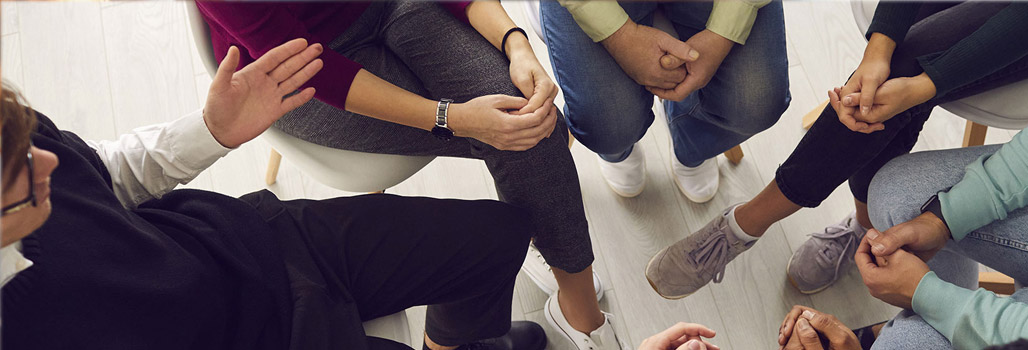Alcohol and drug disorders introduce difficulties when you or a loved one experiences them.
Fortunately long term recovery can be achieved if you make use of proven rehabilitation methods because addiction is a treatable illness.
We will detail how recovery from addiction is achievable for you or a loved one if an holistic treatment method is adopted.
What is Addiction Rehab (Rehabilitation)?
Addiction ‘rehabilitation’ is a broad term that describes the psychotherapeutic and medical treatments that are utilized to help people recover from their dependencies on illegal & legal substances. Rehab is most effective when it is tailored to your individual needs and incorporates a medically-managed detox, residential and outpatient care, as well as aftercare support.

Facts & Statistics about Addiction in Amador
Prevalence of Substance Use Disorder, by Drug Type
(IN THOUSANDS)
- 2,7578.5%Any Substance
- 2,0886.4%Alcohol
- 1,0683.3%Ilicit Drugs
- 2060.6%Pain Medication
Drug- and Alcohol-Induced Deaths by Age Group, California, 2016
- Alcohol-Induced
- Drug-Induced
- 18 to 250.5
- 9.6
- 26 to 354.3
- 13.9
- 36 to 6424.2
- 22.9
- 65+23.7
- 9.4
Drug Use, by Selected Type and Age Group California, 2015 to 2016
- 12 to 17
- 18 to 25
- 26+
- Marijuana*13.2%
- 34.0%
- 13.5%
- Misuse of Pain Medications3.5%
- 8.0%
- 4.3%
- Cocaine0.8%
- 7.2%
- 1.8%
- Heroin0%
- 0.4%
- 0.2%
What are the treatment options available in Amador?
An integrated approach is generally the most effective way to tackle and heal the underlying causes of substance use disorders and alcohol addiction. Identifying coping mechanisms to treat the primary causes of your substance misuse is just as important as treating the symptoms of addiction.

Private Residential Programs
A residential rehab program allows you to live at the treatment facility and receive all necessary treatment on the property. Its core benefit is the ability to receive holistic treatment and support throughout the day.
Leaving your home environment and entering a treatment facility can cushion you against triggers that contribute your substance abuse. You can finish your addiction treatment program and avoid relapse more easily when you stay in a secure facility that is safe and supportive. If you suffer with co-occurring disorders, dual diagnosis or a strong dependency on drugs or alcohol, an inpatient program is best suited to meet your recovery needs. Taking part in a residential treatment program is the most effective way to get sober, and sustaining it will require continued focus because addiction recovery is difficult during the first few months. After you finish your residential treatment program your priority will be your transition to greater independence as you start to think about what you want from your new sober life.
Do You Need Help?
We work together towards sobriety.

Sober Living Programs
A sober living program will provide you with the skills you need, through compassion and understanding. You can expect:
- A house manager to check in on you regularly
- Working on boundaries for positive behavior in recovery
- Getting guidance and companionship from other individuals who will have similar challenges
Outpatient Programs
Outpatient rehab programs are usaully quite flexible and allow you to have therapy at the rehab facility while you continue any work or family commitments.
Outpatient programs will help you with:
- Drug abuse education
- Counseling and therapeutic interventions involving individual or group therapy – Your individual needs often determine the length of your outpatient program, which may extend from a few months to over year.
Detox Only Programs
The initial steps of any treatment program is detoxification, which removes any substances from your body and deals with your physical dependency on it. Withdrawal symptoms are the body’s main response to detox, as it gets used to operating without the substance. Withdrawal symbolizes the start of the process of rehab, and should always be followed up by overcoming the main causes of your addictive behavior, to avoid a repeat of the same pattern of behaviors.
Many drugs result in symptoms of withdrawal and cravings for a long time after they have been eliminated from your system. Relapse is less risky when you are equipped with the life skills required to navigate your life in recovery.
Paying for Private Treatment
If you make the decision to continue with private treatment, you can contact your healthcare provider to make a claim or pay the cost of rehab with your own funds. Many private insurance companies will contribute to some of the costs of a rehab program, which could help with a detox plan, rehab program and aftercare provisions. The amount you can claim is down to your provider and the details of your policy agreement.
We recommend finding out how much cover you can claim for before enrolling in a program. Our Verify Your Insurance page – https://www.unitedrecoveryca.com/ – can help you determine eligibility for cover.
Clients will have to pay for the cost of rehab if they do not claim from their insurance provider. It may be possible to opt for a payment plan if you cannot afford to pay the full amount straight away.
State Funded Programs
If you are battling substance use disorder and do not have the funds to fund private treatment, you should plan for a state-funded rehabilitation program. By using funds from state and federal resources including Medicaid, these programs may provide treatments including:
- Medical assessment and detox if required
- Rehab treatment and extended care
If you are not supported by private health insurance or you live in a low income household, you may consider applying for a state-funded treatment program. You can expect to provide:
- Evidence that you are a resident of the US
- Proof of income
- Proof of living arrangements
- Medical details about your drug or alcohol addiction issues
Click https://www.grants.gov/ to learn more about applying. You can also find direct details to contact your state agency by clicking here: https://www.samhsa.gov/sites/default/files/single-state-agencies-directory-08232019.pdf

The following state-funded addiction rehab programs are available in Amador:
Amador County Behavioral Health
10877 Conductor Boulevard, Suite 300, Sutter Creek, CA 95685
209-223-6412
www.amadorgov.orgGold Country Health Initiative LLC
820 and 830 State Highway 88, Jackson, CA 95642
209-257-1501
https//getoffopiates.comCalaveras County Behavioral Hlth Servs Substance Abuse Programs
891 Mountain Ranch Road, San Andreas, CA 95249
209-754-6555
substanceabuse.calaverasgov.us/
Maintaining Addiction Recovery in Amador
You may find some initial difficulties once you leave rehab. At the rehab center the environment was safe and you had professional support. After leaving the rehab center you may encounter unanticipated challenges that you are not prepared for.
If you experienced a severe dependency and have not developed a social structure to return to when you leave rehab, you may find long term recovery more of a challenge. If you don’t have aftercare support or guidance in the initial stages of recovery, relapse can occur.
The following AA/NA meetings are available in Amador:
AA - Ione Camanche Group Discussion
Group Discussion:
United Methodist Church, 150 W Marlette, St. Ione CA 95640
Tuesday: 7:30 PM
https://cnia30.org/AA - Amador County Speaker Meeting
Open: St Patrick’s Catholic Church, 115 Court Street, St. Jackson, CA 95642
Saturday: 6:00 PM
https://cnia30.org/Topic Discussion
Amador Catholic Center, 11361 Prospect Drive, Jackson, CA 95642
Tuesday: 11:30 PM
https://cnia30.org/
Aftercare & Alumni Programs
Aftercare programs extend your rehab program once you return to your daily life. Up to 60% of people in recovery will relapse due to unpredictable challenges in life, so enrolling in aftercare programs can boost your chance of avoiding these pitfalls.
Once you approach the end of your rehab program, you will discuss the therapies and counseling services most beneficial to your long-term sobriety, and an aftercare package will be designed to help you sustain it. After the successful completion of your rehabilitation program you will be eligible to join an alumni community program so you can remain in contact with staff and ex-clients.
You can participate in Alumno events, join meetings and receive advice and motivation from others who are also in long-term sobriety. This gives you an opportunity to reciprocate and support other individuals in recovery.
Support Groups (Fellowship Meetings)
Through support group events you can enable a support structure that is great for your long-term sobriety.

You will benefit from long-term recovery support if you join groups like Narcotics Anonymous or Alcoholics Anonymous by attending weekly 12-step meetings. During local meetings, you can share and learn from other member’s recovery stories from other members. Many individuals in recovery attend nearby meetings to help them in their recovery journey. Support groups provide them with the important tools to stay away from substances, allowing them to take responsibility for their actions to themselves and others.
Support for Families & Children Affected by Addiction

The entire family unit is affected by addiction in the home, some more than others. The person with the addiction issues needs help, but other members of the family need support and guidance too.
Taking part in family support groups can help you to manage the situation better, as well as encourage you in providing greater support to those struggling with dependency. Get help and support for the Family with the below support groups:
- Parents of Addicted Loved Ones
- SMART Recovery Family & Friends
- NAMI Family Support Groups
- Al-Anon
- Families Anonymous
- Alateen
- Nar-Anon









